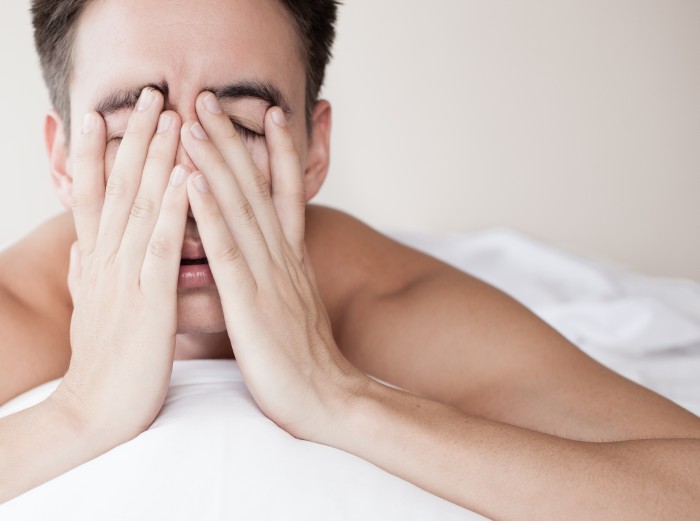How Does Sleep Apnea Affect the Brain?

According to the American Sleep Apnea Association, approximately 25 million Americans have some form of obstructive sleep apnea, which is a chronic disease that involves frequent pauses in a person's breathing during sleep. Most health warnings about this condition focus on how it can lead to high blood pressure, heart disease and diabetes, but apnea can also negatively impact brain function.
How sleep apnea affects the brain
People with apnea often experience symptoms such as daytime drowsiness, shortened attention span, moodiness, depression, anxiety and reduced short term memory recall. Research has shown that the disease may also have a long term impact on the brain.
Physical changes in the brain
Sleep apnea can change the shape of the brain over time. Because people with apnea stop breathing during sleep, the brain is temporarily deprived of oxygen, which can result in brain damage. A study conducted by the UCLA School of Nursing found decreased amounts of both gray and white matter in subjects with apnea when compared to similar subjects without it. The study also found changes in the levels of neurotransmitters that affect thinking and physical functions, such as blood pressure and perspiration. Seung Bong Hong of the Sungkyunkwan University School of Medicine in Seoul, South Korea, concluded that decreased sleep quality and brain damage could lead to poor memory, emotional problems and decreased cognitive functioning.
Memory loss and cognitive impairment
Research has shown that sleep apnea may make it more difficult for short-term memories to be stored as long-term memories. An important part of the long-term memory creation process occurs during sleep. Because apnea disrupts sleep, it also disrupts this function, which can lead to memory loss. A study by New York University researchers found that subjects with sleep apnea may experience mild cognitive impairment as much as 10 years earlier than subjects without sleep disorders. The study also indicated that the disease might lead to earlier onset of Alzheimer's disease in some people with the condition.
Dental sleep apnea treatment
Thankfully, there are a number of dental sleep apnea oral appliance treatment options to address the disorder. One common treatment option is the use of oral appliances, which includes mandibular devices and tongue-retaining appliances, both of which help keep the airway open and unobstructed throughout the night.
Additionally, CPAP machines may be used, under the supervision of a dentist and doctor. CPAP machines have more moving parts than oral appliances, however, the results tend to be worth it. In some scenarios, it may be recommended to combine CPAP machines with oral appliances to appropriately treat the sleep apnea.
Whether an oral appliance or CPAP machine is used, individuals suffering from sleep apnea will experience a better night's rest and a healthier brain.
Conclusion
Untreated sleep apnea can negatively affect both the physical and mental health of an individual. Snoring, choking sounds while asleep and daytime drowsiness may be signs of undiagnosed sleep apnea. Because treatment can reverse brain damage caused by the lack of airflow and prevent further damage, it is important for people experiencing the symptoms of sleep apnea to consult a doctor for testing and diagnosis.
Request an appointment here: https://www.abbadent.com or call Abbadent Dental and Implants at (563) 556-8388 for an appointment in our Dubuque office.
Check out what others are saying about our dental services on Yelp: Sleep Apnea in Dubuque, IA.
Related Posts
Learning about your sleep apnea treatment is your next step after being diagnosed with this fairly common sleeping condition. According to Hopkins Medicine, it’s important to treat sleep apnea, because it can have long-term consequences for your health. Ready to find out more about why treating this condition is so important to your overall health?Want…
Sleep apnea is a serious condition that causes the airway to become obstructed. Airway obstruction leads to an inability to breathe as oxygen is no longer able to flow. Additionally, sleep apnea can result in a lack of sleep, which may translate to poor work ethic, irritability, and stress. Thankfully, sleep apnea can be addressed, managed,…
Sleep apnea and dentistry have a lot of crossover that many are surprised to hear. The oral cavity is often what causes sleep apnea, which makes a dentist an expert at detecting, diagnosing and treating this common condition. Without treatment, patients are at risk of loss of oxygen and long-term damage to the oral cavity.…
An oral appliance is one of the treatment options for sleep apnea. Many patients prefer this type of device because they are more comfortable than wearing a mask and that they are portable and can be moved around easily. It is a convenient and less-invasive way to treat the symptoms of sleep apnea. Continue reading…
